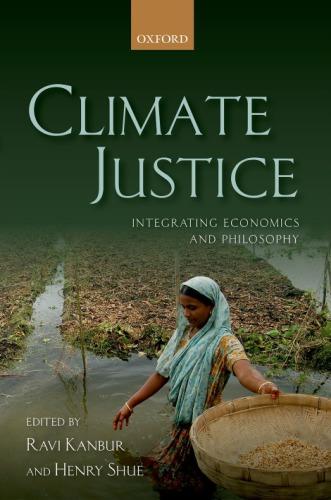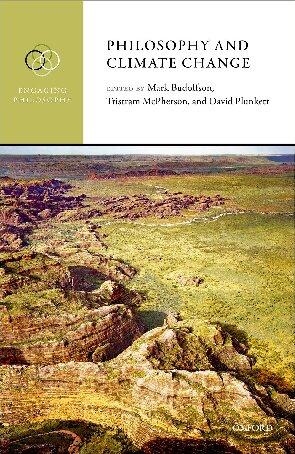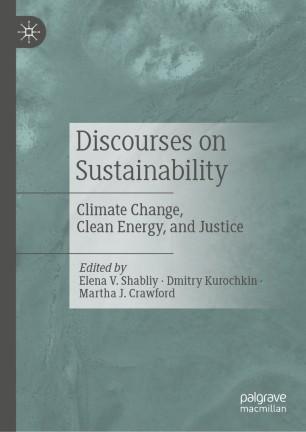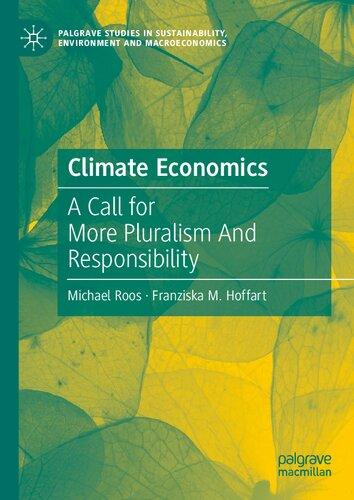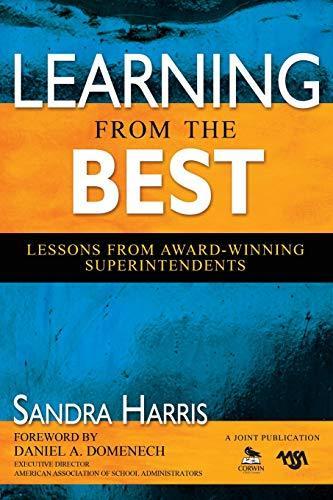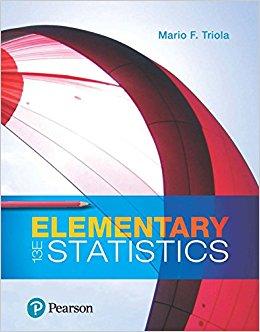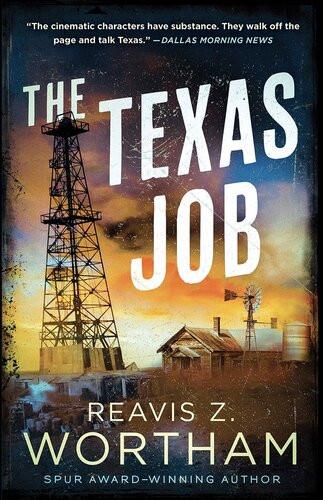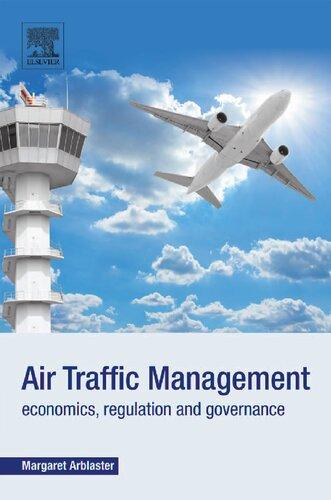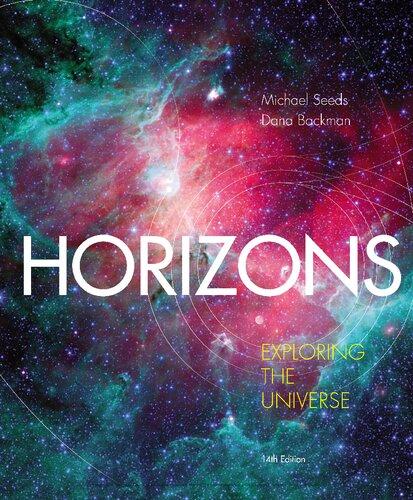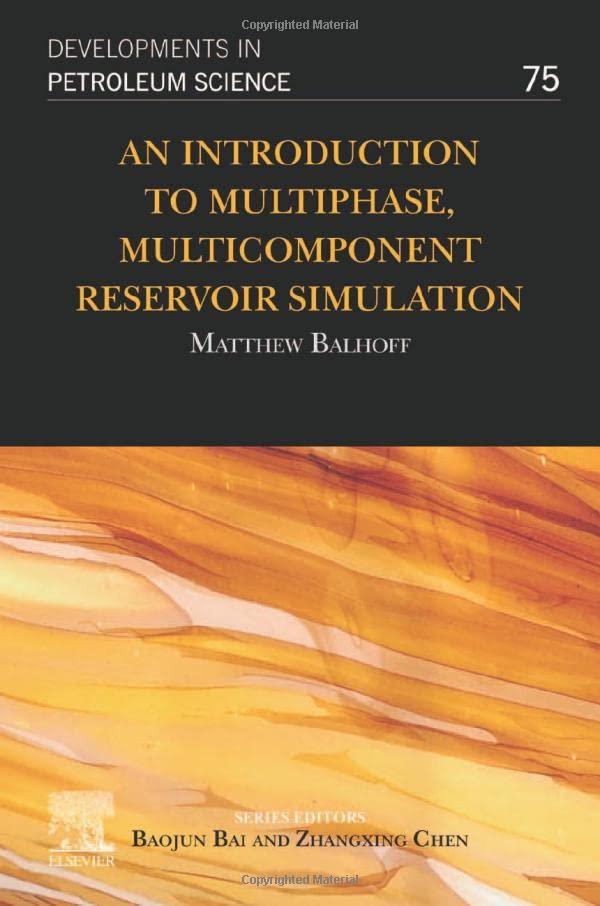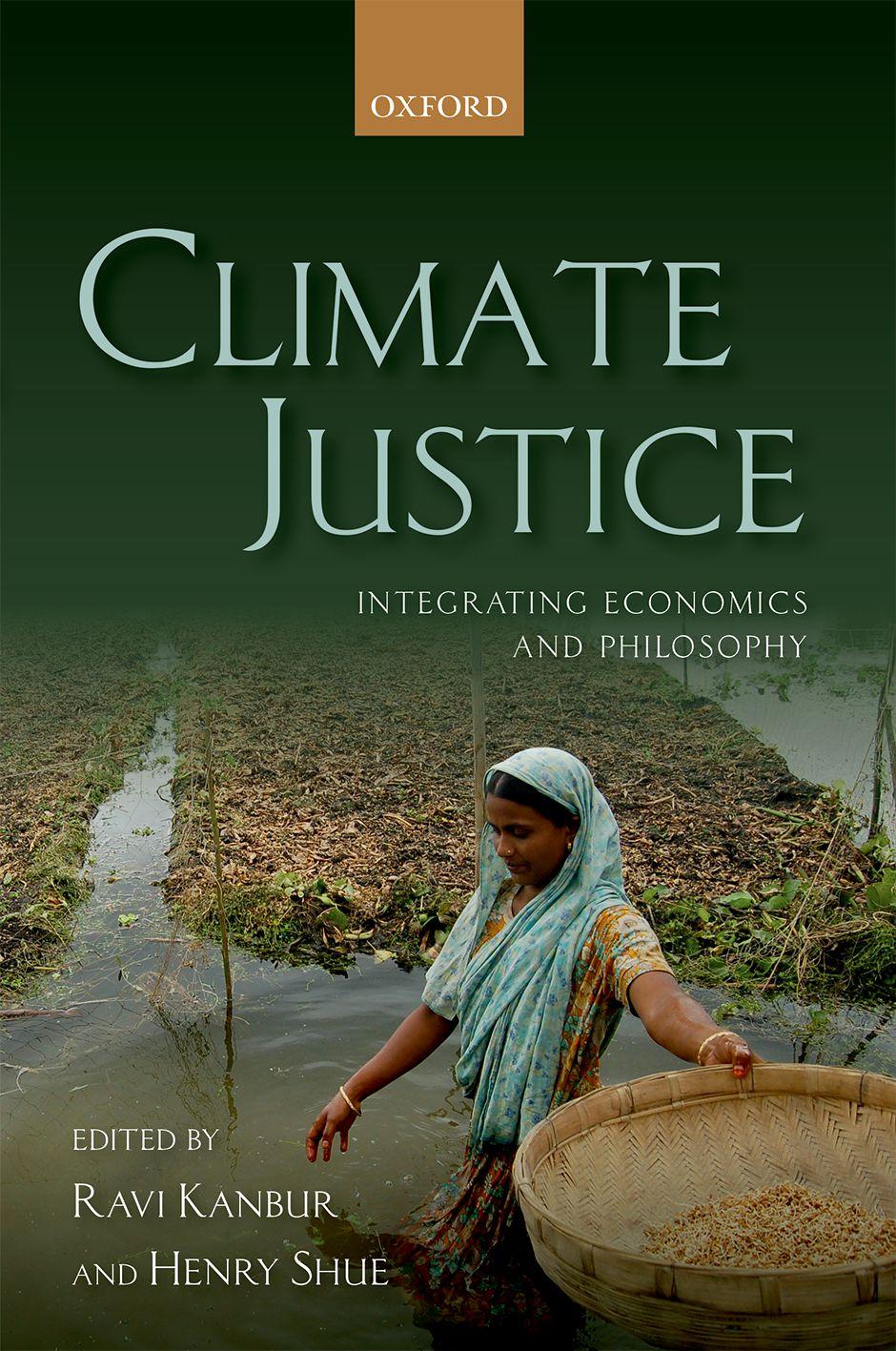https://ebookmass.com/product/climate-justice-integratingeconomics-and-philosophy-ravi-kanbur/
Instant digital products (PDF, ePub, MOBI) ready for you
Download now and discover formats that fit your needs...
Philosophy and Climate Change Mark Budolfson
https://ebookmass.com/product/philosophy-and-climate-change-markbudolfson/
ebookmass.com
Discourses on Sustainability: Climate Change, Clean Energy, and Justice 1st ed. Edition Elena V. Shabliy
https://ebookmass.com/product/discourses-on-sustainability-climatechange-clean-energy-and-justice-1st-ed-edition-elena-v-shabliy/
ebookmass.com
Climate Economics: A Call for More Pluralism And Responsibility Michael Roos
https://ebookmass.com/product/climate-economics-a-call-for-morepluralism-and-responsibility-michael-roos/
ebookmass.com
Learning
From
the Best: Lessons Award-Winning Superintendents 1st
https://ebookmass.com/product/learning-from-the-best-lessons-awardwinning-superintendents-1st/
ebookmass.com
https://ebookmass.com/product/etextbook-elementary-statistics-13thedition/
ebookmass.com
The Texas Job Reavis Z. Wortham
https://ebookmass.com/product/the-texas-job-reavis-z-wortham-2/
ebookmass.com
Air Traffic Management: Economics, Regulation and Governance 1st Edition Margaret Arblaster
https://ebookmass.com/product/air-traffic-management-economicsregulation-and-governance-1st-edition-margaret-arblaster/
ebookmass.com
Pucking Lethal: An MM Age Gap Hockey & Mafia Romance (Deadly Puck Daddies Book 2) Zack Wish
https://ebookmass.com/product/pucking-lethal-an-mm-age-gap-hockeymafia-romance-deadly-puck-daddies-book-2-zack-wish/
ebookmass.com
Horizons : Exploring the Universe Fourteenth Edition
Michael A. Seeds
https://ebookmass.com/product/horizons-exploring-the-universefourteenth-edition-michael-a-seeds/
ebookmass.com
Simulation Matthew Balhoff
https://ebookmass.com/product/an-introduction-to-multiphasemulticomponent-reservoir-simulation-matthew-balhoff/
ebookmass.com
ClimateJustice
ClimateJustice IntegratingEconomics
andPhilosophy
Editedby RaviKanburandHenryShue
GreatClarendonStreet,Oxford,OX26DP, UnitedKingdom
OxfordUniversityPressisadepartmentoftheUniversityofOxford. ItfurtherstheUniversity’sobjectiveofexcellenceinresearch,scholarship, andeducationbypublishingworldwide.Oxfordisaregisteredtrademarkof OxfordUniversityPressintheUKandincertainothercountries
©OxfordUniversityPress2019
Chapter2©TheWorldBank2019
Themoralrightsoftheauthorshavebeenasserted
FirstEditionpublishedin2019
Impression:1
Allrightsreserved.Nopartofthispublicationmaybereproduced,storedin aretrievalsystem,ortransmitted,inanyformorbyanymeans,withoutthe priorpermissioninwritingofOxfordUniversityPress,orasexpresslypermitted bylaw,bylicenceorundertermsagreedwiththeappropriatereprographics rightsorganization.Enquiriesconcerningreproductionoutsidethescopeofthe aboveshouldbesenttotheRightsDepartment,OxfordUniversityPress,atthe addressabove
Youmustnotcirculatethisworkinanyotherform andyoumustimposethissameconditiononanyacquirer
PublishedintheUnitedStatesofAmericabyOxfordUniversityPress 198MadisonAvenue,NewYork,NY10016,UnitedStatesofAmerica
BritishLibraryCataloguinginPublicationData
Dataavailable
LibraryofCongressControlNumber:2018939909
ISBN978–0–19–881324–8
PrintedandboundinGreatBritainby ClaysLtd,ElcografS.p.A.
LinkstothirdpartywebsitesareprovidedbyOxfordingoodfaithand forinformationonly.Oxforddisclaimsanyresponsibilityforthematerials containedinanythirdpartywebsitereferencedinthiswork.
Contents
ListofFigures vii
ListofTables ix
ListofContributors xi
1.ClimateJustice:IntegratingEconomicsandPhilosophy1 RaviKanburandHenryShue
2.PoorPeopleontheFrontLine:TheImpactsofClimateChange onPovertyin203024 JulieRozenbergandStéphaneHallegatte
3.GoverningtheCommonstoPromoteGlobalJustice:Climate ChangeMitigationandRentTaxation43 MichaelJakob,OttmarEdenhofer,UlrikeKornek, DominicLenzi,andJanMinx
4.EquityImplicationsoftheCOP21IntendedNationally DeterminedContributionstoReduceGreenhouseGasEmissions63 AdamRose,DanWei,andAntonioBento
5.ClimateChangeandInequity:HowtoThinkaboutInequities inDifferentDimensions95 NicoleHassounandAndersHerlitz
6.ClimateChangeandEconomicSelf-Interest113 JulieA.Nelson
7.Noncompliers’ Duties123 AnjaKarnein
8.Divest–Invest:AMoralCaseforFossilFuelDivestment139 AlexLenferna
9.JusticeandPosterity157 SimonCaney
10.DiscountingandtheParadoxoftheIndefinitely PostponedSplurge175
MatthewRendall
11.TheControllabilityPrecautionaryPrinciple:Justification ofaClimatePolicyGoalUnderUncertainty188 EugenPissarskoi
12.TheSocialCostofCarbonfromTheorytoTrump209 J.PaulKelleher
13.Long-TermClimateJustice230 JohnNolt
Appendix:DeclarationonClimateJustice247
Index 251
ListofFigures
2.1.Chosenindicatorsforpovertyandinequalitiesforfourcountries28
2.2.Summaryofclimatechangeimpactsonthenumberofpeopleliving belowtheextremepovertythreshold,bysource34
2.3.Increaseinpovertyrateduetoclimatechangeintheworstcase climatechangescenarioconsidered36
2.4.Incomelossesforthepoorest40percentineachcountryandinour fourscenarios(y-axis)againstaverageincomelosses37
3.1.Revenuesfromcarbonpricingundera450ppmscenariowithfull technologicalavailability48
3.2.Currentsourcesoftaxrevenuesaswellaspotentialoflandtaxesand distributionaleffects52
3.3.Totalshareofresourcerentsneededtosimultaneouslyachieve universalaccessto(a)water,(b)sanitation,(c)electricity,and(d) telecommunication54
3.4.Projectedchangesineconomicrentsaccruingtofossilenergycarriers andcarboninmitigationscenarios,relativetobaseline,overthe twenty-firstcentury(inUS$trillion)56
4.1.Lorenzcurveinrelationtopopulation(countriesorderedbypercapita COP21emissionallowancesinascendingorder)67
4.2.LorenzcurveinrelationtopercapitaGDP(countriesorderedby percapitaGDPindescendingorder)68
4.3.MarginalcostcurvesofGHGmitigationforCalifornia,EU,and Chinain203074
4.4.MacroeconomicmarginalcostcurvesforChina,EU,andCaliforniain203078
4.5.MarginalcostcurvesofGHGmitigationforCalifornia,EU,and Chinain2030(includingfueleconomystandardsinCalifornia’sMAC)80
4.6.MarginalcostcurvesofGHGmitigationforCalifornia,EU,China, andIndiain203084
5.1.Case7 105
5.2.Inequalitymapscomparingcountriesandgenerations107
5.3.Case10109
ListofTables
2.1.Impactofclimatechangeonextremepoverty35
4.1.ComparisonofAtkinsonindexbetweentheBAUscenarioandCOP21 scenario70
4.2.Correlationofkeyvariables71
4.3.Basicdata74
4.4.Economy-wideemissionstradingsimulationamongCalifornia,theEU, andChinainyear203076
4.5.Economy-wideemissionstradingsimulationamongCalifornia,theEU, andChinainyear203079
4.6.Economy-wideemissionstradingsimulationamongCalifornia,theEU, andChinainyear203082
4.7.Economy-wideemissionstradingsimulationamongCalifornia,theEU, China,andIndia(offset)inyear203085
A.4.1.UnconditionalGHGmitigationpledges,203089 5.1.Case1100
5.2.Case2101
ListofContributors
AntonioBento isaProfessorattheSolPriceSchoolofPublicPolicyandthe DepartmentofEconomicsoftheUniversityofSouthernCalifornia.Heisalsoa researchassociateoftheNationalBureauofEconomicResearch,andaresearchfellow oftheSchwarzeneggerInstituteforStateandGlobalPolicy.ProfessorBentoisan appliedmicroeconomistwitharesearchprogramintheareasofenvironmental, energy,urban,andpubliceconomics.Hisworkhasbeenpublishedinleadingjournals includingthe AmericanEconomicReview,the JournalofEnvironmentalEconomicsand Management,the JournalofUrbanEconomics,andthe EnergyJournal.ProfessorBento contributedtotheNewYorkStateClimateChangeActionPlan,theNewYorkState BiofuelsRoadmap,theUNScienti fi cCommitteeonProblemsoftheEnvironment, servedasacontributingauthortotheIntergovernmentalPanelonClimateChange FifthAssessmentReport,andwasrecentlyappointedasaleadauthortotheInternationalPanelonSocialProgress.
SimonCaney isProfessorinPoliticalTheoryattheUniversityofWarwick.Heworkson issuesincontemporarypoliticalphilosophy,andfocusesinparticularonissuesof environmental,global,andintergenerationaljustice.Heiscompletingtwobooks GlobalJusticeandClimateChange (withDerekBell)and OnCosmopolitanism bothof whichareundercontractwithOxfordUniversityPress.Heistheauthorof Justice BeyondBorders (OxfordUniversityPress,2005).Heco-edited ClimateEthics:Essential Readings (OxfordUniversityPress,2010)withStephenGardiner,DaleJamieson,and HenryShue.Hispublicationshaveappearedinjournalssuchas Philosophy&Public Affairs, JournalofPoliticalPhilosophy,and Politics,EconomicsandPhilosophy.Hehasalso writtenreportsforpublicbodies,includingabackgroundpaperon ‘EthicsandClimate Change’ fortheWorldBank,andareporton ‘ClimateChange,EquityandStranded FossilFuelAssets’ forOxfamUSA.
OttmarEdenhofer isDesignatedDirectorofthePotsdamInstituteforClimateImpact ResearchandProfessorfortheEconomicsofClimateChangeattheTechnicalUniversityBerlin.Moreover,heisfoundingdirectoroftheMercatorResearchInstituteon GlobalCommonsandClimateChangeaswellasadvisertotheWorldBankregarding issuesofeconomicgrowthandclimateprotection.HeisamemberoftheGerman NationalAcademyofSciences(Leopoldina)andoftheNationalAcademyofScience andEngineering(acatech).Hehaspublishednumerousarticlesinleadingpeerreviewedjournalsandhigh-rankingdisciplinaryjournalsandauthoredvariousbooks. From2008to2015heservedasCo-ChairofWorkingGroupIIIoftheNobelLaureate IntergovernmentalPanelonClimateChange,shapingtheFifthAssessmentReporton
ClimateChangeMitigationsubstantially,whichhasbeenconsideredalandmark reportandprovidedthescientificbasisfortheParisAgreement.
StéphaneHallegatte istheLeadEconomistwiththeGlobalFacilityforDisasterReductionandRecovery(GFDRR)attheWorldBank.HejoinedtheWorldBankin2012after tenyearsofacademicresearch.HewasaleadauthoroftheFifthAssessmentReportof theIntergovernmentalPanelonClimateChange.Heistheauthorofdozensofarticles publishedininternationaljournalsinmultipledisciplinesandofseveralbooks.Healso ledseveralWorldBankreportsincluding ShockWaves in2015,and Unbreakable in2016. Hewastheteamleaderforthe WorldBankGroupClimateChangeActionPlan,alarge internalcoordinationexercisetodetermineandexplainhowtheGroupwillsupport countriesintheirimplementationoftheParisAgreement.Heholdsanengineering degreefromtheÉcolePolytechnique(Paris)andaPhDineconomicsfromtheÉcoledes HautesÉtudesenSciencesSociales(Paris).
NicoleHassoun isAssociateProfessorinPhilosophyatBinghamtonUniversityanda visitingscholaratCornellUniversity.Shehaspublishedmorethanseventypapersin journalslikethe AmericanPhilosophicalQuarterly, JournalofDevelopmentEconomics, JournalofAppliedEthics, AmericanJournalofBioethics,and PhilosophyandEconomics. Her firstbook, GlobalizationandGlobalJustice:ShrinkingDistance,ExpandingObligations, waspublishedbyCambridgeUniversityPressin2012andhermanuscript GlobalHealth Impact:ExtendingAccessonEssentialMedicinesforthePoor isundercontractwithOxford UniversityPress.ProfessorHassounalsoheadstheGlobalHealthImpactproject intendedtoextendaccesstomedicinestotheglobalpoor.GlobalHealthImpact launchedattheWorldHealthOrganizationinJanuary2015.Theprojectisintended toassistpolicymakersinsettingtargetsforandevaluatingeffortstoincreaseaccessto essentialmedicines.
AndersHerlitz,PhD,isaresearcherattheInstituteforFuturesStudiesinStockholm whereheworkswithintheresearchprogram ClimateEthicsandFutureGenerations andleadstheresearchprojectGoodandJustAllocationofHealth-RelatedResources.
Dr.Herlitz’sworkprimarilyfocusesonvaluetheory,distributiveethics,andpopulationlevelbioethics.
MichaelJakob isaresearcherattheMercatorResearchInstituteonGlobalCommons andClimateChange(MCC)inBerlin.BeforejoiningtheMCC,hespentmorethan five yearsasaPhDstudentandpostdocresearcheratthePotsdamInstituteforClimate ImpactResearch.HeholdsaPhDineconomicsfromtheTechnicalUniversityofBerlin andhasobtaineddegreesinphysics,economics,andinternationalrelationsfrom universitiesinMunich,St.Gallen,andGeneva.Hisresearchinterestsincludeclimate changemitigationindevelopingcountries,thepoliticaleconomyofclimatepolicy,as wellastheinterlinkagesbetweenenvironmentalpolicyandhumanwell-being.
RaviKanbur isT.H.LeeProfessorofWorldAffairs,InternationalProfessorofApplied EconomicsandManagement,andProfessorofEconomicsatCornellUniversity.He hasservedontheseniorstaffoftheWorldBankincludingasChiefEconomistfor Africa.Hehasalsopublishedintheleadingeconomicsjournals,includingthe Journal ofPoliticalEconomy, AmericanEconomicReview, ReviewofEconomicStudies, Journalof
EconomicTheory,and EconomicJournal.HeisPresidentoftheHumanDevelopment andCapabilitiesAssociation,ChairoftheBoardofUnitedNationsUniversity-World InstituteforDevelopmentEconomicsResearch,Co-ChairoftheScientificCouncilof theInternationalPanelonSocialProgress,memberoftheOECDHighLevelExpert GroupontheMeasurementofEconomicPerformance,pastpresidentoftheSociety fortheStudyofEconomicInequality,pastmemberoftheHighLevelAdvisoryCouncil oftheClimateJusticeDialogue,andpastmemberoftheCoreGroupoftheCommissiononGlobalPoverty.
AnjaKarnein isAssociateProfessorofPhilosophyatBinghamtonUniversity(SUNY) wheresheteachespoliticalphilosophyandethics.Herprimaryresearchinterests concernquestionsofclimatejusticeandourdutiestofuturegenerations.Since2013 shehasbeeneditorofthedomain “Climate,Nature,Ethics” oftheinterdisciplinary journal WIREsClimateChange.
J.PaulKelleher isAssociateProfessorofBioethicsandPhilosophyattheUniversityof Wisconsin-Madison.Hestudiesethicalandphilosophicalaspectsofpublicpolicy, especiallyhealthpolicyandclimatechangepolicy.
UlrikeKornek receivedherPhDineconomicsfromtheTechnischeUniversitätBerlin in2015.AfterworkingatthePotsdamInstituteforClimateImpactResearch,she currentlyholdsapositionasapost-doctoralresearcherattheMercatorResearchInstituteonGlobalCommonsandClimateChange.Herresearchinterestsareinenvironmentaleconomicswithafocusoninternationalclimatepolicyusingnumericaland analyticalmodeling.ShealsoholdsadiplomainphysicsfromtheOtto-von-Guericke UniversitätinMagdeburg,Germany.
AlexLenferna isaFulbrightScholarandPhCintheUniversityofWashingtonPhilosophyDepartment,andanEndeavourResearchFellowattheUniversityofNewSouth Wales’ PracticalJusticeInitiativeClimateJusticeResearchStream.Hisresearchfocuses onclimateethicsandhisPhDdissertationmakesamoralcaseforarapidandjust transitionawayfromfossilfuels.Alexholdsmaster’sdegreesinphilosophyfrom RhodesUniversityandtheUniversityofWashington,completingtheformerasa MandelaRhodesScholar.Hereceivedgraduatecertificatesinbothenvironmental studiesandclimatesciencefromtheUniversitiesofKansasandWashingtonrespectively.Alexhasrecentlyservedasaresearchconsultantwith350.org,afellowwith CarbonWashington,aleaderonanumberofdivestmentcampaigns,andaclimate justicestewardwiththeAllianceforJobsandCleanEnergy.Heisa first-generation SouthAfricanwhosefamilyhailsfromMauritius.
DominicLenzi isapost-doctoralresearcherattheMercatorResearchInstituteon GlobalCommonsandClimateChange,intheworkinggroupScientificAssessments, Ethics,andPublicPolicy.Heisaphilosopherworkingonethicalandpoliticalissues raisedbyclimatechangeandthesustainabilityoftheglobalcommons.Dominic’s currentresearchfocusesuponjustentitlementstonaturalresources,andtheethicsof negativeemissions.
JanMinx,PhD,isheadoftheMCCWorkingGroupAppliedSustainabilityScienceand ProfessorforClimateChangeandPublicPolicyatthePriestleyInternationalCentrefor
ClimateattheUniversityofLeeds.Hetakesaninterdisciplinaryresearchapproachto issuesofenergy,climatechange,andsustainabledevelopmentwithapplicationsto citiesandinfrastructure,globalsupplychainnetworks,aswellashistoricandfuture transformationprocessesofsocietiesandtheirgovernance.BeforejoiningtheMCC, hewasHeadoftheTechnicalSupportUnitoftheWorkingGroupon ‘Mitigationof ClimateChange’ oftheIntergovernmentalPanelonClimateChange(IPCC)coordinatingtheWorkingGroup’scontributiontotheIPCC’sFifthAssessmentReport.Hehas co-authoredarticlesinscientificjournalssuchas Science, Nature, ClimateChange,and the ProceedingsoftheNationalAcademyofSciences amongothersandisamemberof theeditorialboardofthejournals EconomicSystemsResearch and CarbonBalanceand Management
JulieA.Nelson isProfessorofEconomicsattheUniversityofMassachusettsBostonand SeniorResearchFellowattheGlobalDevelopmentandEnvironmentInstituteatTufts University.Herresearchinterestsincludeecologicaleconomics,ethicsandeconomics, andfeministeconomics.Sheistheauthorofmanypublicationsincluding Economics forHumans (UniversityofChicagoPress,2ndedition,2018)andarticlesinjournals rangingfrom Econometrica and EcologicalEconomics to EconomicsandPhilosophy and Hypatia:JournalofFeministPhilosophy. SheiseditoroftheEconomicsandBusiness Ethicssectionofthe JournalofBusinessEthics,andisthe2018President-Electofthe AssociationforSocialEconomics.
JohnNolt isDistinguishedServiceProfessorintheDepartmentofPhilosophyatthe UniversityofTennesseeandaResearchFellowintheEnergyandEnvironmentalPolicy ProgramattheHowardH.BakerJr.CenterforPublicPolicy.Hismainareasofresearch arephilosophicallogic,formalvaluetheory,environmentalethics,intergenerational ethics,andclimateethics.Heistheauthororeditorofsevenbooks,threeonlogicand fouronenvironmentalethics mostrecently EnvironmentalEthicsfortheLongTerm (Routledge,2015).Noltisalong-timeenvironmentalactivistandproponentofsustainableliving,andformanyyearshechairedtheCommitteeontheCampusEnvironment,whichadvisestheChancellorattheUniversityofTennesseeoncampus environmentalpolicy.
EugenPissarskoi isamemberofthedepartmentsofEthicsandEducationandNature andSustainableDevelopmentattheInternationalCentreforEthicsintheSciencesand HumanitiesoftheEberhardKarlsUniversityofTübingen.Havingstudiedphilosophy andeconomicsattheUniversityofMannheimandtheFreeUniversityofBerlin,he receivedhisPhDfromtheInstituteforPhilosophy,FreeUniversityofBerlin,withthe thesis “ClimateChangeandSocialWelfare.” Thishasbeenpublishedas GesellschaftlicheWohlfahrtundKlimawandel (2014)withoekomverlag.From2010to2017,hewas researcherattheInstituteforEcologicalEconomyResearch,Berlin,andheworkedwith theresearchgroup “LimitsandObjectivityofScientificForeknowledge:TheCaseof EnergyOutlooks” atKarlsruheInstituteofTechnologyin2011.Inhisresearch,he mainlyfocusesondecision-makingunderuncertainty,methodologyofappliedethics, andenvironmentalethics.
MatthewRendall isLecturerinPoliticsandInternationalRelationsattheUniversityof Nottingham.Muchofhisworkhasfocusedonlarge-scalewarandpeace,including
suchtopicsastheethicsofnucleardeterrence,whetherthereisa “separatepeace” amongdemocracies,andcollectivesecurity.Hehasalong-standinginterestinRussian foreignpolicy,particularlyduringtheperiodoftheConcertofEurope(1815–54).More recentlyhehasalsobeenwritingaboutintergenerationaljustice,climatechange,and othertopicsinmoralphilosophyandpoliticaltheory.
AdamRose isaResearchProfessorintheUniversityofSouthernCalifornia(USC) SolPriceSchoolofPublicPolicy,andaFellowoftheSchwarzeneggerInstitutefor StateandGlobalPolicy.ProfessorRose’sprimaryresearchinterestistheeconomicsof disasters.Hehasspearheadedthedevelopmentofacomprehensiveeconomicconsequenceanalysisframeworkandhasdonepioneeringresearchonresilience.Hisother majorresearchareaistheeconomicsofenergyandclimatechangepolicy,wherehehas focusedontheaggregateanddistributionalimpactsofclimatemitigationpolicy, includingadvancingmethodologiesinbothcomputablegeneralequilibrium,and macroeconometricmodeling.ProfessorRoseistheauthorofseveralbooksand250 professionalpapers,includingmostrecently DefiningandMeasuringEconomicResilience fromaSocietal,EnvironmentalandSecurityPerspective (Springer), EconomicConsequence AnalysisTool (Springer),and TheEconomicsofClimateChangePolicy (EdwardElgar).He wasrecentlyelectedPresidentoftheInternationalSocietyforIntegratedRiskManagementandaFellowoftheRegionalScienceAssociationInternational.
JulieRozenberg isanEconomistwiththeWorldBankSustainableDevelopment Group.Herworkincludesgreengrowth,climatechangemitigationstrategies,climate changeadaptation,anddisasterriskmanagement.Sheisanauthorof “Decarbonizing Development:ThreeStepstoaZeroCarbonFuture” and “Shockwaves:Managingthe ImpactsofClimateChangeonPoverty.” ShefocusesonhelpingWorldBankteamsand clientstakeclimatechangeconstraintsandotherlong-termuncertaintiesintoaccount inthepreparationofprojectsandstrategies,inordertobuildresilienceinWorldBank clientcountries.SheholdsanengineeringdegreefromtheÉcoleNationaleSupérieure deTechniquesAvancéesandaPhDineconomicsfromtheÉcoledesHautesÉtudesen SciencesSocialesinParis.
HenryShue wastheco-founderoftheInstituteforPhilosophyandPublicPolicyatthe UniversityofMaryland(1976–87),theinauguralHutchinsonProfessorofEthicsand PublicLifeatCornellUniversity(1987–2002),andProfessorofInternationalRelations, UniversityofOxford(2002–7).Bestknownfor BasicRights:Subsistence,Affluence,and U.S.ForeignPolicy (Princeton,1980;2ndedition,1996),hepublishedhis firsttwo decadesofwritingsonclimatechangeas ClimateJustice:VulnerabilityandProtection (OxfordUniversityPress,2014).Hisarticlesonthemoralityofviolenceappearedas FightingHurt:RuleandExceptioninTortureandWar (OxfordUniversityPress,2016).He iscurrentlywritingaseriesofarticlesontheurgencyofactiononclimatechangein lightofdutiesofjusticetofuturegenerations.
DanWei isaResearchAssociateProfessorintheSolPriceSchoolofPublicPolicyof USC.Herresearchfocusesoneconomicmodelingofenergyandclimatechangepolicies andeconomicconsequenceofnaturalorman-madedisasters.Sheperformedmacroeconomicimpactanalysesofstateclimateactionplansforseveralmajorstatesinthe US.Shecontributedtothecapacitybuildingonmacroeconomicimpactmodelingof
climateactionplansinGuangdong,ChinaandBajaCalifornia,Mexico.Intheareaof economicsofdisasters,shemadesignificantcontributionsineconomicimpactstudies ofmajordisasterscenariosfortheUnitedStatesGeologicalSurvey.Shewasakey investigatorinanNationalScienceFoundationstudytoanalyzedynamiceconomic resilienceofbusinessestodisastersandaFederalEmergencyManagementAgency studytodevelopadisasterdeductible/creditformulaforpost-disasterpublicassistance. Sherecentlyledastudytodevelopandapplyaneconomicframeworktoevaluate resilienceinrecoveringfrommajorportdisruptions.
1 ClimateJustice:IntegratingEconomics andPhilosophy
RaviKanburandHenryShue
1.1.Introduction
Climatejusticerequiressharingtheburdensandbenefitsofclimatechange anditsresolutionequitablyandfairly.Itbringstogetherjusticebetween generationsandjusticewithingenerations.Inparticularitrequiresthat attemptstoaddressjusticebetweengenerationsthroughvariousinterventionsdesignedtocurbgreenhouseemissionstodaydonotendupcreating injusticeinourtimebyhurtingthecurrentlypoorandvulnerable.More generally,issuesofdistributionandjusticeareofparamountimportanceinany discourseonclimatechange.TheUnitedNationsSustainableDevelopment Goals(SDGs)summitinSeptember2015,andtheConferenceofParties(COP) totheFrameworkConventiononClimateChangeinParisinDecember2015, broughtclimatechangeanditsdevelopmentimpact,includingclimatejustice,centerstageinglobaldiscussions.
Intherun-uptoParis,MaryRobinson,formerpresidentofIrelandand theUNSecretaryGeneral’sSpecialEnvoyforClimateChange,institutedthe ClimateJusticeDialogue.1 TheobjectivesoftheClimateJusticeDialoguewere “tomobilisepoliticalwillandcreativethinkingtoshapeanambitiousandjust internationalclimateagreementin2015.” Aspartofthisproject,theglobal HighLevelAdvisoryCommitteetotheClimateJusticeDialoguewasformedin 2013.TheCommitteeincludedformerpresidentsandotherleadersfromthe fieldsofpolitics,science,business,civilsociety,andacademia,andpublicly advocatedforclimatejusticethroughtheirownworkandviaplatforms
1 <http://www.mrfcj.org/our-work/climate-justice-dialogue/>.
facilitatedbytheMaryRobinsonFoundation.Together,theysignedthe DeclarationonClimateJustice,whichisreproducedasanAppendixtothis volume.
Twooftheacademicdisciplineswhichhaveengagedclimatechangeandits justicedimensionsareeconomicsandphilosophy.We,aneconomistanda philosopher,servedontheHighLevelAdvisoryCommitteeoftheClimate JusticeDialogue.Overthethreeyearsofourserviceonthecommittee,we notedtheoverlapandmutualenforcementbetweentheeconomicandphilosophicaldiscoursesonclimatejustice.Butwealsonotedthegreatneedfor thesestrandstocometogethertosupportthepublicandpolicydiscourse, whichdoesnot andcannotaffordto seethingsinseparatesilos.This volumeistheresult.
Inthebroadpolicyandpublicdiscourse, “climatejustice” hasnowbecome acatch-alltermfortheintersectionbetweenpatternsandpathsofclimate changeontheonehand,andtheirconsequencesfordifferentconceptions ofjusticeontheother.Therearemanydifferentformulationsofclimate change,includingtheclaimthatitdoesnotexistatall.Andthereareeven moreperspectivesonjustice,witheachconceptualizationandspecification beingdeeplycontested.Sinceclimatejusticeisattheintersectionofthese terrains,itisnotsurprisingthatitisalsoatopicwheremanyacademic disciplinesseektomaketheircontributionstoadominantpolicyissueof ourtime.Outsideofthenaturalsciences,philosophyandeconomicsaretwo disciplinescentraltotheclimatechangediscourse.
Thisvolumehascontributionsfromeconomistsandphilosopherswhoare clearlyawareof,andinfluencedby,theotherdiscipline’scontributions.In thisoverviewweattempttocharacterizethevariousapproaches,howthey overlapandinteract,andwhattheyhavealreadylearnedfromeachotherand mightstillhavetolearn.Section1.2providesabriefnarrativeoftheoverlappingperspectivesofeconomicsandphilosophyasseenthroughthechapters inthisvolume.Section1.3presentsachapterbychapteraccountofthe volume.Section1.4concludeswithatentativeexplorationofsomepathsto betterintegrationofthetwodisciplinaryapproachestoclimatejustice.
1.2.OverlappingPerspectives
Onewaytoframehowdifferentdisciplinescanengagewithclimatejustice andtheimpactofalternativepoliciesonclimatejustice,istostartwitha distinctionbetweenthepositiveandthenormative.A firststepinevaluating anypolicy,whichincludesthepolicyofdoingnothing,orcontinuingwith the “business-as-usual” scenarioofthecurrentpolicy,istolayoutallthe implicationsofthatpolicyfromnowintothefuture.Asecondstepisto
evaluatethenormativeimplicationsofalternativepolicypaths.Ofcourse thetwoarenotunrelated,becausetheeffortweputintoelucidatingand elaboratingthisorthatimplicationofapolicywilldependuponhowimportantwethinkthatimplicationisforthenormativeevaluation.
Thenaturalsciencesareparamountindevelopingtheimplicationsof anthropogenicactivitieslikegreenhousegasemissionsontheclimate.But theimplicationsofclimatechangeforhumanandnon-humanwell-being bringustothesocialsciencessinceitinvolvestheorganizationandresponse ofeconomicandsocialrelationstoclimatechange.Hereeconomicmodeling iscentralinpredictingtimepathsofincomeandothereconomicvariables througharangeofIntegratedAssessmentModels(IAMs)asseeninthefamous SternReview (Stern,2007)andmanyotherexercises.Theseexercisesare contestedonthemodeling,buttheyarethekeyinputintothenextstep,of evaluatingthetimepathgeneratedbydifferentpolicies.
ThespecificsanddetailsofIAMsappeartobethepreserveofeconomists,but itisintheevaluationofthealternativetimepathsgeneratedbythesemodels thateconomistsandphilosophersoverlapintheirperspectivesandhavemuch tolearnfromeachother,andfurtherintegrationbetweenthetwohasalotto contributetothepolicydiscourse.Thepotentialoverlaps,anddebates,canin turnbeputintotwobroadcategories:(i)evaluationwithinatimeperiodor generation;(ii)evaluationacrosstimeperiodsorgenerations.Cuttingacross theseareissuesrelatedtofocusingoneconomicoutcomesversusabroader rangeofconsiderationsgoingbeyondthenarrowlyeconomic.
Comingthentonormativeevaluationwithinatimeperiodorgeneration, onefeatureofnoteisthattheParetocriterionofeconomictextbooks,thatin comparingtwoscenariosoneispronouncedtobesuperiorifinitnooneis worseoffandatleastonepersonisbetteroffcomparedtotheother,isdifficult to findineconomicanalysesofclimatechange.Thusitisrecognizedthat therearegainersandlosersfromclimatepolicy,withingenerations(and acrossgenerations).Theusualtropethateconomicsignoresdistributionis notfoundinclimatechangeanalysis,asarguedinKanbur(2015).Anditisnot foundintheeconomicsorphilosophychaptersinthisvolume.Rather, RozenbergandHallegatte(Chapter2)projecttheconsequencesofdifferent scenariosforpovertyintheyear2030.Rose,Wei,andBento(Chapter4)assess theincomedistributionimplicationsofemissionreductionsproposalsinthe ParisAgreementaccordingtodifferentequitycriteria.Jakobetal.(Chapter3) assesstheequityimplicationsofalternativeusesoftherevenuesfromacarbon taxorotherformsoftaxationofnaturalresourcerents.PhilosophersHassoun andHerlitz(Chapter5)focusontheissueofwithin-countryandbetweencountryinequality.
Inalloftheseexercises,theinterflowandinterplaybetweeneconomics andphilosophyisstrong,whetherthecontributionisfromeconomistsor
philosophers.However,theassumptionsoftheeconomistsare “neoclassical,” withtheirmodelsbuiltonstandardrationalchoiceformulationofindividual behavior.Nelson(Chapter6),aneconomistherself,critiquestheseassumptionsasbeinginadequatecharacterizationsofindividualbehavior,makingthe pointthattheyalsorestrictpolicyoptionsavailableastheydonotallowfor moralandethicalbehavioronthepartofindividuals.Suchbehavioris exploredfurtherbyLenferna(Chapter8),whodevelopsthepositionthat therearestrongconsequentialistandnon-consequentialistargumentsfor divestmentfromfossilfuels.Karnein(Chapter7)addressestheseissuesatthe nationallevelandsuggeststhatwhenacountrysuchastheUSrefusesto complywiththeParisAgreement,itfacesothermoraldutiesasanoncomplier.
Asmightbeexpected,thetimedimension,lookingacrossgenerations,also leadstosignificantoverlapsbetweeneconomistsandphilosophers,andit alsoleadstosignificantdebates withineconomicsandwithinphilosophyas wellasbetweenthetwo.ThephilosopherCaney(Chapter9)explorestheimplicationsofthenormativeprinciplethatpolicyinanygenerationshouldbeso directedastoleavefuturepopulationsatleastaswelloffasthepresentgeneration.Ashenotes,thisisrelatedtoeconomicsNobellaureateRobertSolow’s dictumthatsustainabilityrequireseachgenerationtoleavetothenext “whateverittakestoachieveastandardoflivingatleastasgoodasourown” (Solow, 1992,p.15).ItdiffersfromLlavador,Roemer,andSilvestre’s(2015)perspective, whichaddsacommitmenttoimprovewell-beingovertime.
TheissueofdiscountingisnotafocusintheCaneyperspectivebutiscentral tomanydebatesineconomicsandphilosophy.Famously,the SternReview (2007)wascriticized,andpraised,forusingaverylowdiscountrateto evaluatethetimepathsgeneratedbyitsIAMs.Weitzman(2007)criticized thechoicebecauseactualinterestratesinthemarketplaceweremuchhigher, whichinturnraisedthequestionofwhymarketinterestratesshouldbeused fornormativeevaluation.Rendall(Chapter10)takesupthestandardreason givenineconomicsastowhythereshouldbediscountingofthefuture that withoutittherecouldbenorankingofalternativetimepathsextending toinfinity;discountingisneededtogive finitevaluessoalternativescan becompared.Rendall’sansweristosupplementdiscountingwithavoiding theriskofextinctionorpermanentimpoverishment.Aversionofasimilar perspective,centeredonhisControllabilityPrecautionaryPrinciple(CPP),is advancedbyPissarskoi(Chapter11).HearguesforinterpretingtheCPPto requirereducingCO2 concentrationstothepre-industriallevelof280parts permillion,tomostdecisivelyavoiddevastationoftheplanet.
Supplementationofadiscountedsumofbenefitsintothefuturewithother morallyrelevantconsiderationsisalsopresent,asanexpositionandacritique, inthefocusbyKelleher(Chapter12)onthestandardeconomicformulation ofevaluatingtimepathsofwell-beingasputforwardbyRamsey(1928)
whichissimplythesumofdiscountedpercapitautilitiesofeachgeneration multipliedbythenumberofpeopleinthatgeneration.Thisisclearlya utilitariansocialwelfarefunction,butKelleherfurthercharacterizesthe Ramseyapproach,whichisbasicallytheeconomistapproachasexemplified byStern(2007),asbeingonewhere
the betterness ordering...is ipsofacto a rightness ordering,wherearightnessorderingranksfeasiblepathsintermsof everything thatmatterstopolicychoice.... Manyphilosopherswillbecomfortablewith(andallphilosopherswillbefamiliar with)theidea...thatvalueconsiderationscannot bythemselves fullydetermine properchoicefromamongfeasiblepolicyoptions.Climateeconomists,inmy experience, findthisaharderideatomakesenseof.(Kelleher,Chapter12)
Oneexampleofconcernwithbroaderconsiderationsthanjustthevaluation oftimepathswouldbeafocusontheinjusticeofharmdonetohumanswho willbekilled,evenintheverydistantfuture,asaresultofchoicesabout climatechangemadenow.ThisthesisisdevelopedbyNolt(Chapter13).
Thustheoverlapsandinteractionsbetweeneconomicandphilosophical perspectivesaremanifold.Onthespectrumfrompositivetonormative analysisofpolicyoptions,economicsdominatesatthepositiveendwhile philosophicalcontributionsareprimarilyatthenormativeend,especiallyin highlightingthethinkingthroughofarangeofprinciplesforclimatejustice. Economicsreliesonthese,asseenintheassessmentoftheequityoftheParis Agreement.Buteconomistsappeartobemostcomfortablewithautilitarian frameworkofanalysis,whilephilosopherspushfurtherandharderforconsiderationofnon-consequentialistframesofevaluation.Furtherroutesto integrationwillbediscussedinSection1.4,butwenowturntoamoredetailed accountofthechaptersinthevolume.
1.3.TheVolumeChapters
WiththenarrativeframeworkofSection1.2,thissectionprovidesabrief accountofeachofthechapters.Thevolumebeginswithachapterthat initsverytitleevokesaconcernwiththedistributionalimpactofclimate change,goingagainstthestandardcharacterizationofeconomistsasbeing concernedonlywithgrossdomesticproduct(GDP)andnotwithitsdistribution.Chapter2, “PoorPeopleontheFrontLine:TheImpactsofClimate ChangeonPovertyin2030” byJulieRozenbergandStéphaneHallegatte, developsalternativescenarioswithnoclimatechangeasthebaseline.The driversofpovertyaremodeledandappliedtodataforninety-twocountries. Thesedriversincludedemography,sectoralshiftsinproduction,productivity, andeconomicgrowth,aswellasdistributionalpolicy.Intheframework
ofthismodel,twoscenarios, “prosperity” and “poverty,” arecomparedto eachother.
Intothisset-uptheythenintroducetheimpactsofclimatechangeon agriculturalincomes,disease,naturaldisasters,etc.Forexample,foodprices andagriculturalincomesarederivedfromtheglobalagriculturalmodelof Havlíketal.(2015).Formalaria,theyusetheworkofCaminadeetal.(2014), whichprovidesestimatesofmalariaincreaseduetoclimatechange.Giventhe uncertaintysurroundingthequantitativeestimatesoftheseimpacts,they considerahigh-impactandlow-impactscenario.Thisgivesthemfourcases tocompare,crossing “prosperity” and “poverty” withhighandlowclimate changeimpact.
Inthepovertyscenario,theonewheredistributionalpolicyisnotsupportiveofpovertyreduction,theyestimatethat122millionmorepeoplewillbein incomepovertyin2030withahighimpactofclimatechange,comparedwith noclimatechange.Attheotherend,intheprosperityscenariowhendistributionalpolicyissupportive,withlowimpactofclimatechangethereare threemillionmorepoorpeopleinpovertyattheendofthescenarioperiod in2030.Theauthorsemphasizethatthisrangeprimarilyreflectspolicy choices howtheimpactofclimatechangeisminimizedandhowdistributionalpoliciesworktosupportpovertyreduction.Buteventhesenumbers, althoughtheyaredisaggregatedintermsofdistribution,areglobalaggregates. TheauthorsshowthattheimpactsofclimatechangeonpovertyareparticularlysevereinAfricaandinSouthAsia,wherelevelsofpovertyare alreadyhigh.
Chapter2playsthroughthe fifteen-yearconsequencesoftheclimate changethatisalready “bakedinto” thesystembecauseofpastgreenhouseemissions.Thenexttwochaptersinthevolumeconsidertheimmediateequity implicationsofdifferentformsofemissionsreductionsthemselves,without goingintotheimplicationsofthesereductionsforclimatechangeinthefuture. MichaelJakob,OttmarEdenhofer,UlrikeKornek,DominicLenzi,andJanMinx addressthedistributionalimplicationsofmitigationinChapter3, “Governing theCommonstoPromoteGlobalJustice:ClimateChangeMitigationandRent Taxation.” Thebasicideaisthatsincereducingemissionsineffectrestrictsthe useoftheglobalcommonsoftheatmosphere,itcreatesrents.Thequestion theniswhogetstherentsandhowaretheyused?
Thus,asJakobetal.detail,theParisAgreementtolimittemperatureincrease tobelow2°Cmeansaglobalcarbonbudgetofaround40gigatonsofCO2 per year.Thiswouldrequireacarbonpriceintherangeof$40to$80perton.Such carbonpricingcouldgeneraterevenuesoftheorderof$1trillionto$10 trillionperyear,dependingonthespecificintegratedmodelused,by2040. Thisisasignificantsumofmoneyandcouldbeusedtoaddressarangeof distributionalissues,includingthenegativeconsequencesofcarbonpricing
forthepooroftoday.Jakobetal.thenillustratethecloseoverlapbetween economicsandphilosophyastheytakethereaderthroughthebasicprincipleswhichcouldguidesuchrevenuerecycling.Theypointoutthatthereis considerabledebatenotonlyonrevenuedistributionwithinastatebut redistributionacrossstates: “Incontemporaryglobaljusticedebates,thereis deepdisagreementabouttheextentofsuchredistributiveclaims.Ontheone hand,cosmopolitansarguethatrobustprinciplesofdistributivejusticeought toapplyglobally,whileminimalistsarguethatstrongerprinciplesapplywithinstates.” Theygoontodiscussthepoliticalfeasibilityandimplementation issuesofthetaxationofclimateandnaturalresourcerents.
Chapter4,byAdamRose,DanWei,andAntonioBento,isinasimilarspirit toChapter3byJakobetal.butismorecloselyrelatedtotheParisAgreement. “EquityImplicationsoftheCOP21IntendedNationallyDeterminedContributionstoReduceGreenhouseGasEmissions” looksindetailatthespecific proposalsinParisforallocatingemissionreductionsacrosscountries.They firstlookatthecountry-specificreductionpledgesandcomparethesetoa rangeofequityprinciples.Second,theyallowtradingofemissionsallowances acrosscountries.Usingamodeloftradingequilibriumtheycalculatetheprice oftheemissionsallowanceandtheactualamountofsalesandpurchasesthat wouldoccuriftradingwereallowed.Thispermitsthemtoonceagainassess theequityimplicationsoftheinitialallocation.
Afterreviewingarangeofequityprinciples,Rose,Wei,andBentofocuson (i)theegalitarianprincipleand(ii)theabilitytopayprinciple.Theyinterpret the fi rstassayingthatemissionallowancesshouldbeallocatedinproportion topopulation.Ontheotherhand,theyinterpretthesecondassayingthat emissionsreductionsshouldincreasewithpercapitaGDP.These,andother moredetailedquestions,areaddressedusingtheCOP21IntendedNationally DeterminedContributions(INDCs)toreduceemissions.Thesewereagreed toby195countries,buttranslationintoprecisequantitativemagnitudes waspossibleforonlyasubsetofthecountries.Theythenconductaseries ofexercisessuchascomparingtheLorenzcurveoftheactualINDCswith theimpliedLorenzcurveoftheegalitarianprincipleandtheabilityto payprinciple.They fi ndthattheactualINDCsrepresentsigni fi cantdeparturesfromtheseprinciplesasmeasuredbyanumberofinequalityindices. Foremissionstrading,themodelisboileddowntoarepresentationof tradingbetweenregions speci fi cally,dataareusedforChina,theEU,and California.Onceagaintheauthors fi ndthatequityprinciplesareviolated bytheParisINDCs.Indeed,althoughemissionstradingiswellunderstood toreduceglobalcostsofemissionsreductionandisthusanef fi cientpolicy topursue,theircalculationsshowthat “wealthiercountriesstandtogain amuchhigherproportionofthesavings,therebyfurtherworseningthe equityoutcome.”
TheeconomistauthorsofChapters2,3,and4buildspecificmodelsto predicttheoutcomesofvariouspolicies.Theirnormativeevaluativefocus variesbetweenindividualswithinacountry(Chapters2and3),across countries(Chapters3and4)andallindividualsintheworld(Chapter2). ThephilosophersNicoleHassounandAndersHerlitzbringtogetherthese considerationsinChapter5, “ClimateChangeandInequity:HowtoThink aboutInequitiesinDifferentDimensions.” Asismadeclearbytheeconomic modelsofChapters2,3,and4, “Climatechangeandclimatenegotiations actualizeequityconsiderationsinatleastthreerelevantdimensions:distributionsofbenefitsandburdensacrosscountries,withincountriesandacross individualsintheworld.”
Theauthorsgiveanumberofexampleswhereequitywithinnations,equity betweennations,andequityacrossallindividualsintheworldcouldmovein differentdirections.Thiscanclearlyhappeninpracticeforarangeofclimate mitigationefforts.Theythenproceedtodiscusshowthedifferenttypesof inequalitycouldbeweighedrelativetoeachother.Althoughtheydonot themselvespresentargumentsastowhytheweightsmightgoonewayor another,theyclearlyraiseanimportantsetofissuesforphilosophersto consider.Signi fi cantly,thereisanoverlapwitheconomists’ workondecomposingworldinequalityintoawithin-countriesandbetween-countries component(seeforexampleLaknerandMilanovic,2016),andtheirre fl ectionsoninter-countrydifferencesasre presentinginequalityofopportunity (Milanovic,2016).
TheeconomicmodelsofChapters2,3,and4haveastheirbasethe standard “ECON101” rationalchoicemodeloftheindividual.Thusthe emissionstradingmodeofChapter4,althoughappliedtocountries,treats themasindividualsinamarketwherepriceadjuststomatchsupplyofand demandforemissionsallowances.Implicitintheagriculturalincomemodel ofChapter2isfarmers’ rationalresponsetoclimatechange,determining pricesandincomesinagriculturalmarkets.Andalthoughtheframeworkof Chapter2admitsofexternalitiesandmarketfailuresintheallocationofthe globalcommonsthatistheatmosphere,theoveralleconomicanalysisisstill intheframeworkofconventionalwelfareeconomicswithrationalchoice individuals.ItistheseassumptionswhicharequestionedbyJulieA.Nelson, aneconomist,inChapter6, “ClimateChangeandEconomicSelf-Interest.” Nelsonprovidesacritiqueofeconomicapproachesfromtheinside,soto speak,thoughhercritiqueisfocusedmoreonthebasicmodelofchoicethat isthebreadandbutterofeconomics,whetherthismodelisappliedto individualsortonationsmodeledasindividuals.Shestartswiththeposition ofChristianaFigueres,executivesecretaryoftheUNFrameworkConvention onClimateChangeatthetimeofParis,thatnationaleconomicself-interest woulddrivenationstoagreement.WhileNelsonconcedesthat “thereissome
truthtoherargument,” sheposesthefollowingquestions: “Isherassertion aboutnational,andhuman,behaviortrue?Iseconomicself-interesttrulythe mostpowerful motivator?Isitreallythe best thingtorelyon,inoursearchfora saneandequitablesolutiontotheclimatechangecrisis?” Nelson’sanswersto thesequestionsposeachallengetotheanalyticbasisoftheeconomicmethod.
Whenanagreementleadstoaggregategainsoverallbuttherearegainers andlosersunderthataggregate,whatkeepsthelosersintheagreement? Economistsarguethat “sidepayments” fromthewinnerstotheloserswould keeptheagreement,butaseconomistswhoworkon “mechanismdesign” know,evenwiththistherewillbeincentivestocheataftertheagreementis signed.Nelsonquotesawell-knownbookbyPosnerandWeisbach(2010, p.170),whoareultimatelyforcedtocallonethicsas deusexmachina,outside their “incentivecompatibility” framework: “Buttheobligationtoachievea broad,deep,andenforceabletreatyimposesaseriousethicaldutyonrichand poornationsalike theobligationtocooperate.Inourview,itisunethicalfor anationtorefusetojoinaclimatetreatyinordertofree-rideoffofothers.”
Nelsongoesontoelaborateontheaccumulatingevidenceinpsychology andinbehavioraleconomics,thathumanbeingsdoindeedhavestrong ethicalmotivations.NelsonreferstoSen’s(1977,p.326)famousdistinction between “sympathy” and “commitment” asanearlywarningthatallwasnot wellwitheconomicorthodoxy: “Iftheknowledgeoftortureofothersmakes yousick,itisacaseofsympathy;ifitdoesnotmakeyoufeelpersonallyworse off,butyouthinkitiswrongandyouarereadytodosomethingtostopit,itis acaseofcommitment.”
Hercritiqueisdirectedateconomistswho “seemtobebelatedly ‘discovering’ thesocialnatureofhumanbeings.” TheawardofaNobelprizeineconomics toRichardThaler(2017)holdsoutthehopethattheseperspectivesmay becomemainstreamedineconomics,includingintheeconomicanalysisof climatechange.ButinmanywaysNelson’scritiqueisalsohopefulforclimate agreements.SheconcludesbyquotingChristianaFiguerestoshowthather ownmotivationswerenotfromself-interest,butfromdeepethicalroots.
Themoralbasisforactionisalsothefocusofthenexttwochaptersinthe volume.InChapter7, “Noncompliers’ Duties,” AnjaKarneinexploresthe possibilitythatthosewhohavefailedtofulfilltheirbasicresponsibilities towardclimatechange,whichincludesscoresofgovernmentsandlarge numbersofindividuals,oughttofulfillsomespecificotherresponsibilitiesas aconsequenceoftheirnoncompliance.Sincesomanyarenoncompliers,this isahighlysignificantissuethatisvirtuallyuntouchedsofarbyeitherphilosophersoreconomists.Itis,however,especiallydifficulttomakesenseof particulardutiesfornoncomplierswhentheoptionofcompliancewiththe originaldutystillremainsopen.Whywouldn’tthewholedutyofanoncompliersimplybetobecomeacomplier?

